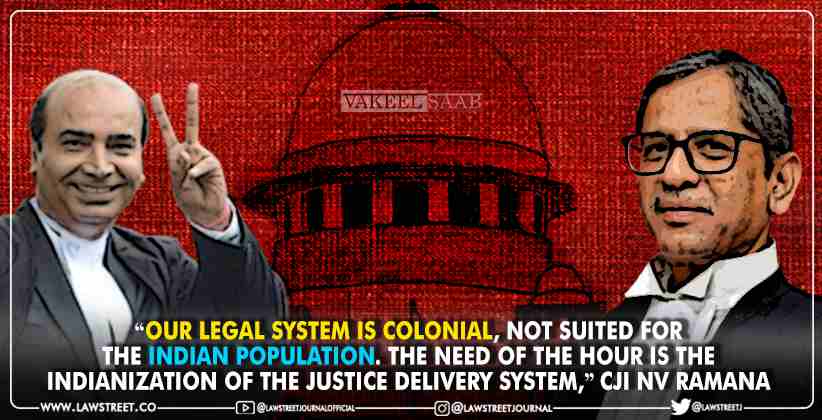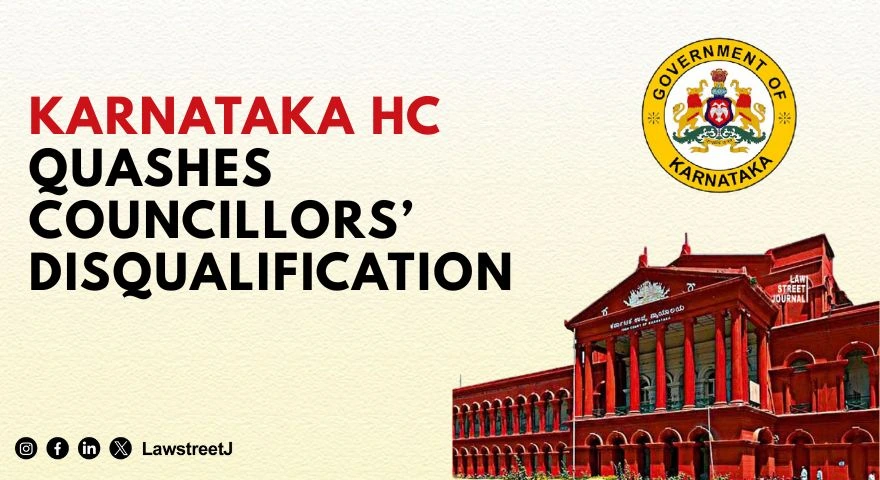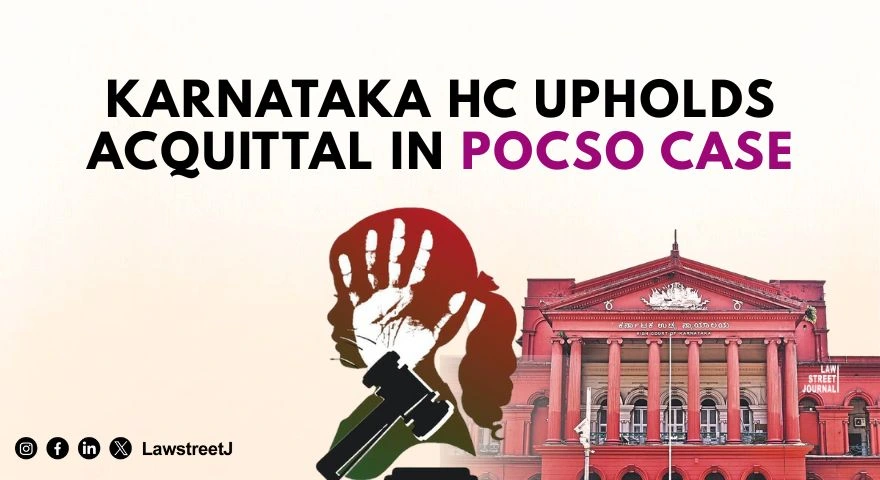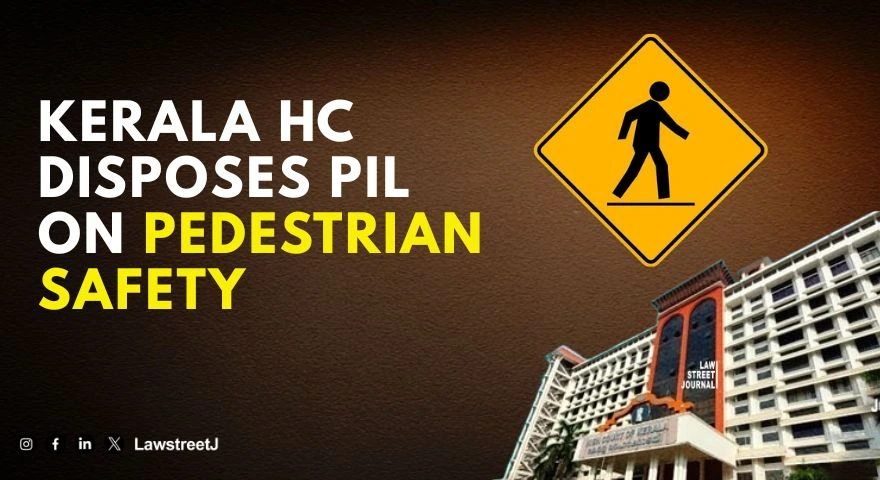In an event organized by the Karnataka State Bar Council to pay tribute to Late Justice MM Shantanagouder, who passed away earlier in April, CJI NV Ramana addressed those present and went on to make several important remarks pertaining to our current state of affairs.
In his speech, he said that the legal system is colonial in India and is unsuitable for the Indian population. CJI Ramana remarked that "The need of the hour is the Indianization of the justice delivery system."
It is pertinent to note that not just CJI Ramana but Supreme Court Advocate Ashwini Upadhyay has also been relentlessly fighting against colonial laws and has filed several PILs in the Supreme Court emphasizing on the urgent need to replace colonial laws in India as a means to bring about fair and equitable justice.
In furtherance of which, Upadhyay even addressed the public at Jantar Mantar on Aug 08, 2021, where he was invited as a guest speaker to sensitize the public about the urgent need to replace colonial laws with comprehensive and stringent laws that are in line with the requirements of contemporary India.
In his address, Upadhyay stated that there are 221 Acts which were drafted before our country got independence and sadly these Acts still remain in force and govern the justice delivery system of the present-day India. The Indian Penal Code 1860, The Indian Evidence Act 1871, The Police Act 1861 are few examples of the colonial Acts which need to be replaced with more stringent and comprehensive laws.
CJI Ramana stated in his speech that, "When I say Indianization, I mean the need to adapt to the practical realities of our society and localize our justice delivery systems. For example, parties from a rural place fighting a family dispute are usually made to feel out of place in the court. They do not understand the arguments or pleadings, which are mostly in English, a language alien to them. These days, judgments have become lengthy, which further complicates the position of litigants. For the parties to understand the implications of a judgment, they are forced to spend more money".
He went on to provide his thoughts on equitable access to justice wherein he stated, "Rural people are left out and don't understand proceedings in English. They end up spending more money."
"These days, judgments have become lengthy, which adds further complication for the litigants who are then unable to understand the implications of a judgment. They are forced to spend more money," he rightly noted.
Another topic of discussion was also the constitution of courts to be litigant friendly. "The common man should not feel scared of judges and courts. Courts should be comforting. The focus point of any legal system is the litigant. Courts should be transparent and accountable in nature," said CJI Ramana.
To this, the CJI also noted that Alternative Dispute Resolution (ADR) would definitely help in saving resources and reducing the pendency of cases.
Lastly, while remembering the last justice MM Shantanagouder, NV Ramana, noted, "The country has lost a common man's judge. He was interested in taking up the cases of the poor and the underprivileged while he was practicing ... His judgments were simple, abundant, practical, and immense with common sense ... He was always prepared for hearings. One thing which stood out was his sense of humor and infectious laughter. In spite of all his health reasons, he always came to sit for hearings. I asked him not to strain, and he said that he can't sit at home. He was built with a different fiber. He sat for hearings till the last day."
The address took place on Saturday (September 18, 2021).









